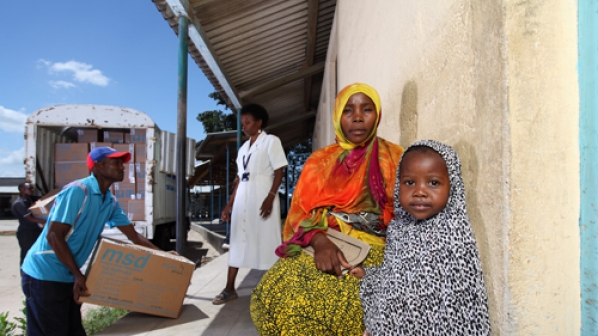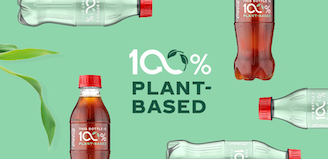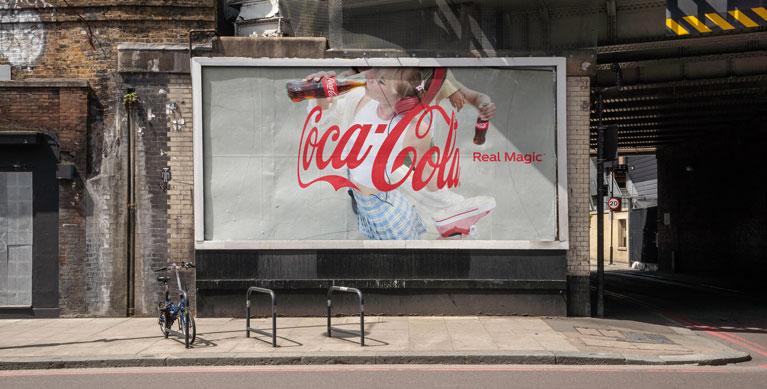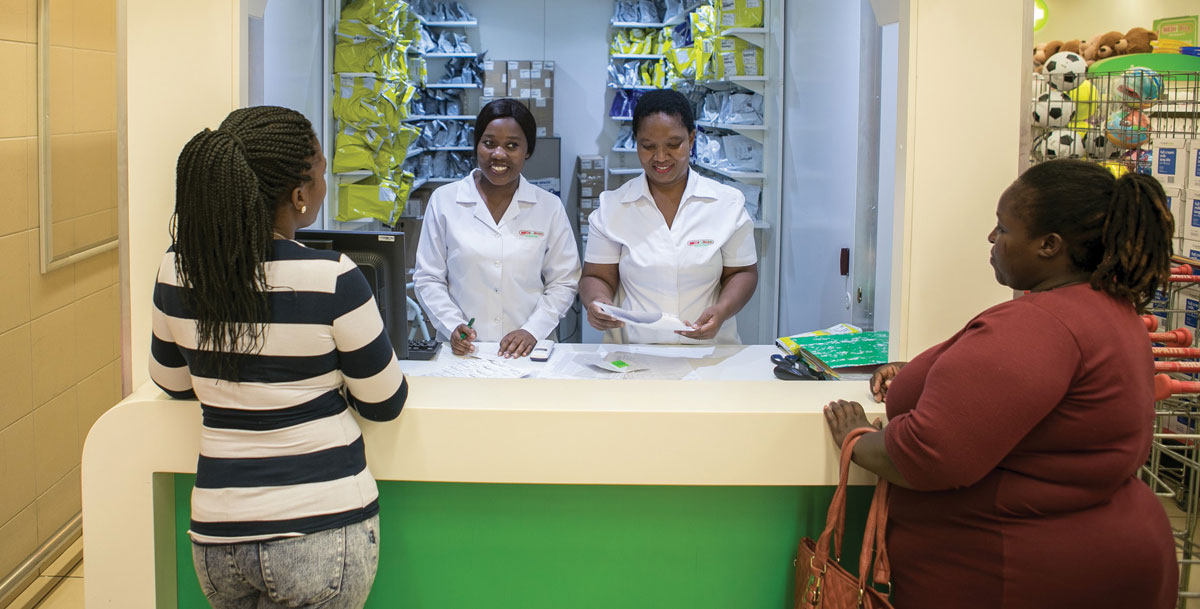
“Project Last Mile” Expands to Improve Availability of Life-Saving Medicines in Additional Regions of Africa
06-23-2014
Atlanta, June 23, 2014 – The Coca‑Cola Company and its Foundations, the U.S. Agency for International Development (USAID), the Global Fund to Fight AIDS, Tuberculosis and Malaria, and the Bill & Melinda Gates Foundation today announced the expansion of “Project Last Mile” to include 10 African countries over the next five years.
This public-private partnership – currently focused on Tanzania and Ghana - applies Coca‑Cola’s logistic, supply chain, distribution and marketing expertise to help African governments maximize the ability to get critical medicines and medical supplies the “last mile” to those who need it most in remote communities in Africa.
Today’s commitment to expand includes an investment of more than $21 million USD from the partners, as well as the official addition of USAID to this powerful coalition. The next country where Project Last Mile is being implemented is Mozambique. The additional seven countries are in various stages of identification and discussion with local governments.
“Africa has been a vital part of our business for more than 85 years, and we’re committed to doing our part to help people across Africa live healthier and more active lives,” said Muhtar Kent, Chairman and CEO of The Coca‑Cola Company. “We know our business can only be as strong as the communities we serve, and we’re honored to use Coca‑Cola’s expertise to improve the distribution of medicine and medical supplies. Project Last Mile has been a great and growing success so far, and we look forward to working with our partners to improve lives across more communities and more countries. It’s wonderful to be able to help more people enjoy better access to life-sustaining and life-enhancing medicines.”
Through Project Last Mile, the government agencies managing the procurement and efficient distribution of essential medicines and medical supplies benefit from private sector expertise, learning how to forecast demand for medicines and vaccines, better market the availability of such commodities, and ensure the cold chain equipment is maintained properly for storing certain medicines and vaccines.
“As a result of Last Mile we have been able to implement professional practices that have improved our planning, distribution and performance management processes. This has improved our capability to consistently deliver critical medical supplies throughout Tanzania,” said Cosmas Mwaifwani, The Director General of the Medical Stores Department in Tanzania. “Since we began working with our partners in 2010, we have been able to increase the availability of medicines in medical clinics by 20-30 percent in some places where we have implemented the direct distribution model. Additionally, the partners have shared distribution tools with us to enable us to efficiently reach more than 5,500 health facilities.”
“Project Last Mile is an excellent example of partners coming together to develop an innovative solution that provides access to critical medicines and medical supplies in remote African communities,” said Mark Dybul, Executive Director of the Global Fund to Fight AIDS, Tuberculosis and Malaria. “Private sector involvement has a vital role to play in public health.”
“As a global community we have set ambitious goals of ending preventable child and maternal deaths and creating an AIDS-free generation,” said USAID Administrator Dr. Rajiv Shah. “By harnessing the power of Project Last Mile's coalition to get life-saving medicines to the people that need them most, we can help to bend the curve and accelerate reductions in child and maternal deaths.”
Project Last Mile is executed in collaboration with Yale’s Global Health Leadership Institute, Accenture Development Partnerships (ADP) and Global Environment & Technology Foundation (GETF), who each bring unique skills to make the project sustainable.
About The Coca‑Cola Company
The Coca‑Cola Company (NYSE: KO) is the world's largest beverage company, refreshing consumers with more than 500 sparkling and still brands. Led by Coca‑Cola, one of the world's most valuable and recognizable brands, our Company's portfolio features 17 billion-dollar brands including Diet Coke, Fanta, Sprite, Coca‑Cola Zero, vitaminwater, Powerade, Minute Maid, Simply, Georgia and Del Valle. Globally, we are the No. 1 provider of sparkling beverages, ready-to-drink coffees, and juices and juice drinks. Through the world's largest beverage distribution system, consumers in more than 200 countries enjoy our beverages at a rate of 1.9 billion servings a day. With an enduring commitment to building sustainable communities, our Company is focused on initiatives that reduce our environmental footprint, support active, healthy living, create a safe, inclusive work environment for our associates, and enhance the economic development of the communities where we operate. Together with our bottling partners, we rank among the world's top 10 private employers with more than 700,000 system associates. For more information, visit www.coca-colacompany.com, follow us on Twitter at www.twitter.com/CocaColaCo or find us on LinkedIn at www.linkedin.com/company/the-coca-cola-company.
About U.S. Agency for International Development (USAID)
The U.S. Agency for International Development (USAID) is the lead U.S. Government agency that works to end extreme global poverty and enable resilient, democratic societies to realize their potential.
About The Global Fund
The Global Fund is an international financing institution dedicated to attracting and disbursing resources to prevent and treat HIV and AIDS, TB and malaria. The Global Fund promotes partnerships between governments, civil society, the private sector and affected communities, the most effective way to help reach those in need. This innovative approach relies on country ownership and performance-based funding, meaning that people in countries implement their own programs based on their priorities and the Global Fund provides financing where verifiable results are achieved.
Since its creation in 2002, the Global Fund has supported more than 1,000 programs in more than 140 countries, providing AIDS treatment for 6.1 million people, anti-tuberculosis treatment for 11.2 million people and 360 million insecticide-treated nets for the prevention of malaria. The Global Fund works in close collaboration with other bilateral and multilateral organizations to supplement existing efforts in dealing with the three diseases.
About the Bill & Melinda Gates Foundation
Guided by the belief that every life has equal value, the Bill & Melinda Gates Foundation works to help all people lead healthy, productive lives. In developing countries, it focuses on improving people’s health and giving them the chance to lift themselves out of hunger and extreme poverty. In the United States, it seeks to ensure that all people - especially those with the fewest resources - have access to the opportunities they need to succeed in school and life. Based in Seattle, Washington, the foundation is led by CEO Dr. Susan (Sue) Desmond-Hellmann and Co-chair William H. Gates Sr., under the direction of Bill and Melinda Gates and Warren Buffett. For more information visit our website at http://www.gatesfoundation.org/.
About The Yale Global Health Leadership Institute
The Yale Global Health Leadership Institute develops leadership through education and research programs that strengthen health systems and promote health equity and quality of care.


